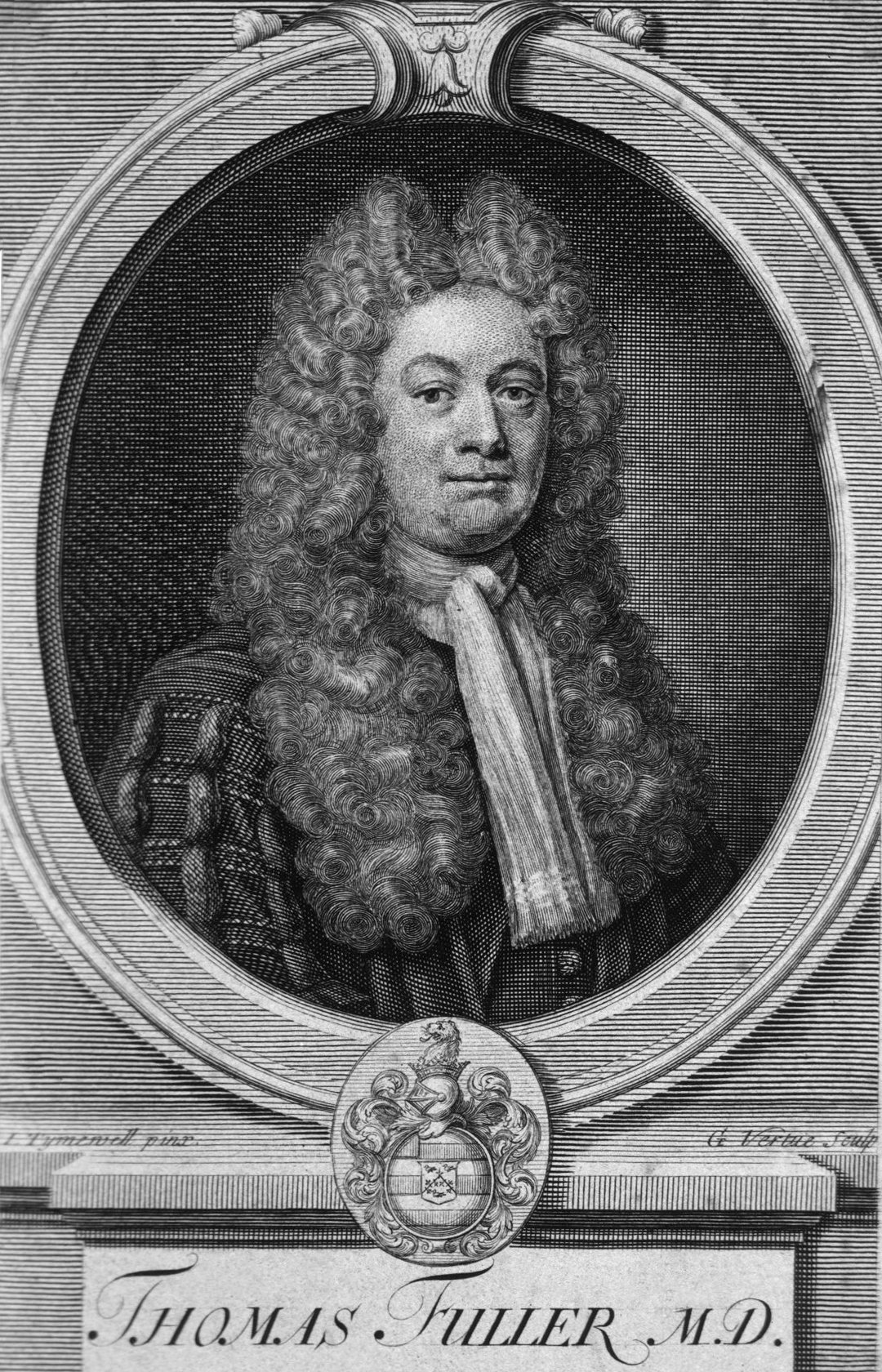“4915. There is no Piety in keeping an unjust Promise.”
Introductio ad prudentiam: Part II (1727), Gnomologia (1732)
Thomas Fuller, M.D. was a British physician, preacher and intellectual.
Fuller was born in Rosehill, Sussex, and educated at Queens' College, Cambridge. He practised medicine at Sevenoaks.
In 1723 he published Pharmacopoeia Domestica, and in 1730 Exanthematologia, Or, An Attempt to Give a Rational Account of Eruptive Fevers, Especially of the Measles and Small Pox. In 1732 he published a compilation of proverbs titled Gnomologia: Adagies and Proverbs; wise sentences and witty saying, ancient and modern, foreign and British which includes the words, "Be you never so high, the law is above you".
Wikipedia

“4915. There is no Piety in keeping an unjust Promise.”
Introductio ad prudentiam: Part II (1727), Gnomologia (1732)
“4368. That Patient is not like to recover, that makes the Doctor his Heir.”
Compare Poor Richard's Almanack (1733) : He's a Fool that makes his Doctor his Heir.
Introductio ad prudentiam: Part II (1727), Gnomologia (1732)
“5465. Weeds are apt to grow faster than good Herbs.”
Introductio ad prudentiam: Part II (1727), Gnomologia (1732)
Introductio ad prudentiam: Part II (1727)
“5243. To talk without thinking is to shoot without aiming.”
Introductio ad prudentiam: Part II (1727), Gnomologia (1732)
“6258. Follow Love, and it will flee;
Flee Love, and it will follow thee.”
Introductio ad prudentiam: Part II (1727), Gnomologia (1732)
“4384. That, which proves too much, proves nothing.”
Introductio ad prudentiam: Part II (1727), Gnomologia (1732)
“5711. Who more busy than they that have least to do?”
Introductio ad prudentiam: Part II (1727), Gnomologia (1732)
“5040. Thrift is the Philosopher's Stone.”
Introductio ad prudentiam: Part II (1727), Gnomologia (1732)
Introductio ad prudentiam: Part II (1727)
“3051. Jack of all Trades is of no Trade.”
Introductio ad prudentiam: Part II (1727), Gnomologia (1732)
“5324. Two Dogs fight for a Bone, and a third runs away with it.”
Introductio ad prudentiam: Part II (1727), Gnomologia (1732)
“2308. He that spares the Bad, injures the Good.”
Introductio ad prudentiam: Part II (1727), Gnomologia (1732)
“4864. There are no Coxcombs so troublesome, as those that have some Wit.”
Compare Poor Richard's Almanack (1741) : There are no fools so troublesome as those that have wit.
Introductio ad prudentiam: Part II (1727), Gnomologia (1732)
“5802. Wolves may lose their Teeth, but not their Nature.”
Introductio ad prudentiam: Part II (1727), Gnomologia (1732)
“4304. Take an Hair of the same Dog that bit you.”
Introductio ad prudentiam: Part II (1727), Gnomologia (1732)
“1936. He is not laughed at, that laughs at himself first.”
Introductio ad prudentiam: Part II (1727), Gnomologia (1732)
“3859. Patience provok'd turns to Fury.”
Introductio ad prudentiam: Part II (1727), Gnomologia (1732)
“1125. Command your Wealth, else that will command you.”
Compare Poor Richard's Almanack (1734) : He does not possess Wealth, it possesses him.
Introductio ad prudentiam: Part II (1727), Gnomologia (1732)
“4238. Spare the Rod, and spoil the Child.”
Introductio ad prudentiam: Part II (1727), Gnomologia (1732)
“5037. Three are too many to keep a Secret, and too few to be merry.”
Introductio ad prudentiam: Part II (1727), Gnomologia (1732)
“4948. They agree like Bells; they want nothing but hanging.”
Introductio ad prudentiam: Part II (1727), Gnomologia (1732)
“6495. An Ounce of Wit that's bought,
Is worth a Pound that's taught.”
Compare Poor Richard's Almanack (1745) : An ounce of wit that is bought, Is worth a pound that is taught.
Introductio ad prudentiam: Part II (1727), Gnomologia (1732)